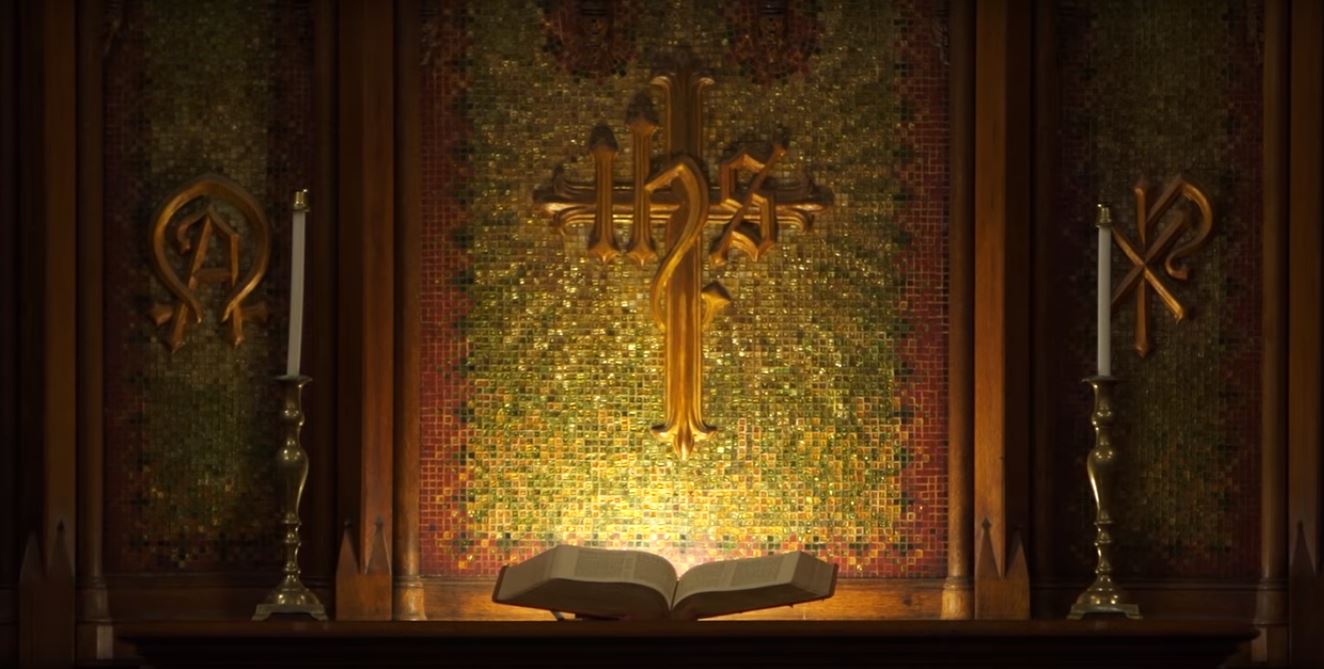We are getting ready to launch our second Conversation Sabbath this fall – and this year the ripple effect is going national.
We’ve already heard that there are plans afoot in Wisconsin, Northern California, Georgia, and Canada, to enroll clergy of many traditions to preach or teach in November about the importance of having crucial end-of-life care conversations. We’d love to learn what you are planning for your area.
“Joining” Conversation Sabbath is easy and straightforward. Simply register your commitment to preach or teach on this topic that touches every life. Once we have your registration, we will send out supporting materials that can be used to announce and promote your work within your spiritual community. You can show your connection to a wider movement by using the Conversation Sabbath 2016 logo and videos you can link to on your website. And we can help streamline some of your work by providing a sample newsletter article, sample social media posts, as well as sermons that were shared by some of last year’s participating clergy.
Some colleagues have asked whether it makes sense to join Conversation Sabbath this year if they preached about the importance of having “The Conversation” last year. My response (unsurprisingly) is, “Yes, of course!”
We know that people respond to difficult topics in different ways over the course of life. Our readiness to forgive or be forgiven, for example, evolves. That is why clergy takes up those themes year after year: with the hope that this will be the year a seed of possibility lands in a ready heart.
Every year, there are people who receive a new or changing diagnosis. This year, another loved one will die. Or a high school senior prepares to leave for college. Before these life changes, listeners may not have been tuned into the topic of embracing the reality of one’s mortality, but now they are eager to hear a good word of support or guidance. Perhaps this is the year to focus on the sacred and challenging role of being a caregiver or how our values are called into sharp relief when faced with having to articulate our goals for care as the body diminishes.
So we ask, what are the theological underpinnings for making decisions about end-of-life care? What are the spiritual gifts to be unwrapped in reflecting on our human frailty? How can sharing our thoughts about our values and ethics, our stories of how death has impacted our lives, and what matters most about living be a gift we give our children and grandchildren? These, too, are themes that can be visited during Conversation Sabbath.
I feel I am “preaching to the choir” of readers of this blog! You already know how valuable it is to have The Conversation sooner, at home, before there is a crisis. That’s why you are the perfect ambassadors to share the invitation to clergy in your community to join Conversation Sabbath November 11-20. Check out our Community Resource Center for more support materials or be in touch to let us know what you need.


Dear Sirs your link to register for interest & materials us not working
Please Advuse if other one
Thank you
Gwynne Bee RN
Parish nurse
Dear Gwynne Bee,
We checked the link and it seems to be working fine. It should take you to another page where you can enter your information. Here is another link.
Please send me any supplies as I want to do that at the VA in West Palm Beach
Chaplain Kim House
Hi Chaplain Kim,
Thanks so much for you interest in sharing with the VA in West Palm Beach! Please look for more information from me in your inbox soon.
Meanwhile please register your interest at this link, and we will update you with more resources as they are available.
Rosemary Lloyd
I live in a Life Care community and for the past 1 1/2 years I have been facilitating a closed class of twelve which we call “Dying Wise”. In this class, I have presented death and dying from every angle I can imagine. We have used your guidance materials in our class and have all had “the conversation”. I am thinking of taking the subject of “The Conversation” to the larger community and wondered if “registering” to teach this is appropriate and would aid me in structuring a presentation.
Dee Hammons
Gainesville, Georgia
By way of follow up to your foregoing thoughts and comments, may I briefly share with you about an undertaking In recent weeks, through the Continuing Legal Education Committee of the Chicago Bar Association, a colleague and I, members of the Committee, prepared and offered two seminars dealing with “End of Life ” concerns. Directed to the attention of lawyers–over 100 attended, some in person, some electronically–these seminars specifically presented end of life ethical and religious concerns by Jewish, Catholic, and Moslem attorneys, the former two of whom were a practicing rabbi and a priest. We also had additional presentations by the co-founder of Life Matters Media, a representative of “Five Wishes,” and an experienced oncologist. There’s more to talk about, of course, but my interest at this juncture is to learn more about the role of your organization, its goals, and its activities, particularly those planned for November.
Indeed, please tell me more.
Melvin S. Merzon
Chicago, Illinois
Dear Melvin,
I’m glad to hear that you share our interest in spreading these important topics to the community. I think it is great that you could address different concerns various faith groups have.
The Conversation Project is dedicated to reach people where they live, work and pray in order to start the important conversation about end-of-life care for themselves and their loved ones. Between November 11-20 we are asking clergy and other faith leaders and congregation members to preach or teach on the importance of having these conversations. Please feel free to look around our website, especially at the Community Resource Center and the Starter Kit.